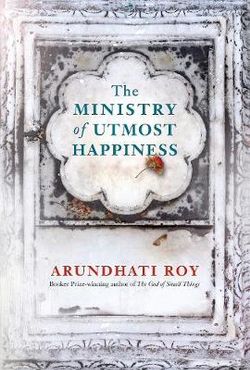**LONGLISTED FOR 2017 MAN BOOKER PRIZE**
**Longlisted for the Women's Prize for Fiction 2018**
A new novel from the Booker Prize-winning author of the monumental God of Small Things.
How to tell a shattered story? By slowly becoming everybody. No. By slowly becoming everything.
In a city graveyard, a resident unrolls a threadbare Persian carpet between two graves. On a concrete sidewalk, a baby appears quite suddenly, a little after midnight, in a crib of litter. In a snowy valley, a father writes to his five-year-old daughter about the number of people that attended her funeral. And in the Jannat Guest House, two people who've known each other all their lives sleep with their arms wrapped around one another as though they have only just met.
Here is a cast of unforgettable characters caught up in the tide of history. Told with a whisper, with a shout, with tears and with laughter, it is a love story and a provocation. Its heroes, present and departed, human and animal, have been broken by the world we live in and then mended by love and for this reason, they will never surrender.



Share This Book: